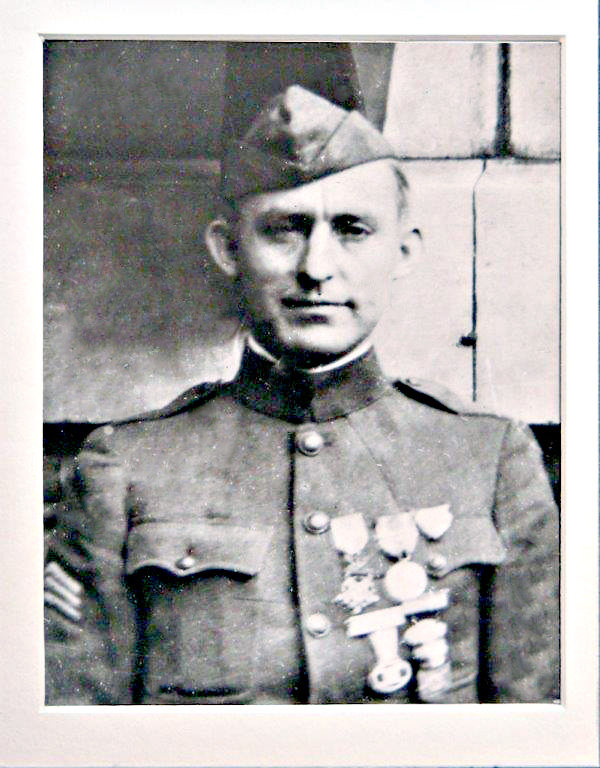
Joseph Benard Adkison was born on January 4, 1892, in Atoka, Tenn., the son of Joseph Adkison and Adeline Delashmit.
Sgt. Adkison was a sergeant in the U. S. Army, 30th Division, 119th infantry, C Company when, on September 29, 1918, near Bellicourt, France, his platoon was pinned down by murderous machine gun fire. Acting alone, Sergeant Adkison rushed across 50 yards of open ground directly in the face of hostile machine gun fire, kicked the machine gun from the parapet into the enemy trench, and at the point of a bayonet, captured the three men manning the gun. His gallantry and quick action enabled his platoon to continue its advance and was a major contribution toward the Allied breakthrough in the Hindenburg Line. Later, that same day, he was severely wounded by an exploding artillery shell, receiving wounds in the left arm, left leg, and left hip.
He was awarded the Congressional Medal of Honor in 1919 for his bravery and was cited with the following citation, “When murderous machinegun fire at a range of 50 yards had made it impossible for his platoon to advance, and had caused the platoon to take cover, Sgt. Adkison alone, with the greatest intrepidity, rushed across the 50 yards of open ground directly into the face of hostile machinegun, kicked the gun from the parapet into the enemy trench, and at the point of the bayonet captured the three men manning the gun. The gallantry and quick decision of this soldier enabled the platoon to resume its advance.”
Sgt Adkison was the first man from Tennessee to earn the Medal of Honor during World War I. His other awards were the World War I Victory Medal, the Great War for Civilization Medal, the Italian War Cross, and the Republic of Portugal Medal.
Invited to Washington D.C. in March 1919 to receive the Medal of Honor from President Wilson, Adkison declined due to wounds not fully healed. When he was feeling better, an Army Major was sent from Washington D.C., to Tipton County to make the Medal of Honor presentation for the President. Sgt. Adkison was awarded his Medal of Honor presentation surrounded by family and friends at the Atoka Presbyterian Church. A bridge in Obion County was named in his honor.
Family records indicate Sgt. Adkison was a very quiet man who shunned publicity, and who was known affectionately as Bernard by his family and friends. Sgt Adkison died at the age of 73 on May 23, 1965, at the V.A. Hospital in Memphis, and is buried in Salem Associate Reformed Presbyterian Cemetery in Atoka, Tenn.
Sgt. Joseph Benard Adkison was one of six Tennessee soldiers to be awarded the Medal of Honor during WWI. The others were James E. Karnes, Milo Lemery, Edward R. Talley, Clavin J. Ward, and Alvin C. York.

